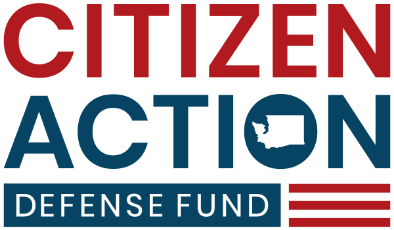The Citizen Action Defense Fund is on the front lines of numerous legal battles involving key questions of constitutional rights and free-market, limited government principles.
Active Cases
- unDivided Media v. City of Seattle. Public records suit filed in state court related to records regarding a Councilmember’s public safety vote.
- CADF v. OFM. Litigation against the Governor’s Office of Financial Management for withholding documents from billion-dollar negotiations with public sector unions.
- Myers v. Ecology. Suit against the Dept. of Ecology and Dept. of Commerce after they failed to release a (legally required) complete and accurate re: carbon emissions statewide.
- North Pearl St. v. Tacoma. Challenge to unconstitutional measure (the Tacoma Initiative) that will increase cost of housing in Tacoma.
To read about the amicus briefs we’ve filed, click HERE.

